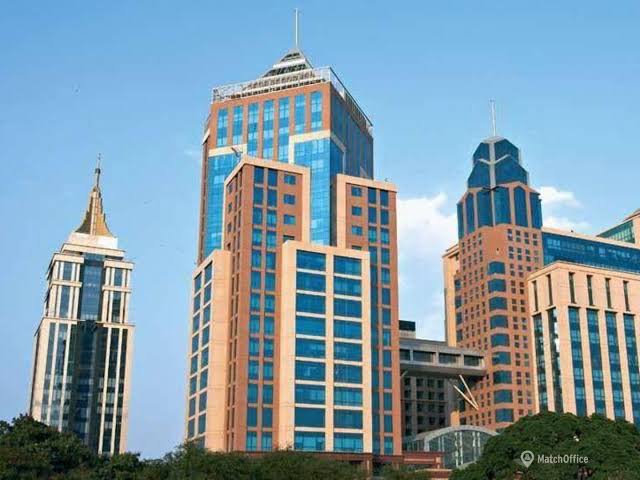The Influence of Foreign Investment on Bangalores Luxury Property Market
Read latest blogs and articles from Housystan

The Information mentioned here was last updated on:
29/1/2026The Influence of Foreign Investment on Bangalore's Luxury Property Market
Bangalore, often referred to as the "Silicon Valley of India," is a city teeming with innovation, technology companies, and a cosmopolitan culture that attracts individuals from across the globe. Among its many dynamic attributes, the city's luxury property market stands out as a vibrant sector buoyed notably by foreign investment. Let's delve into how these international influences are shaping Bangalore's high-end real estate landscape.
Historical Context: A Snapshot of Bangalore’s Real Estate Evolution
- Verified Tenants/Buyers
- Unlimited Property Listing
- Zero subscription/charges fee
- The transformation of Bangalore from a leafy garden city to a bustling technology hub began in the late 20th century.
- As IT and biotech industries boomed, the demand for housing surged, laying the groundwork for a thriving real estate market.
- Initially driven by domestic buyers, the tide has shifted, bringing a wave of international investors into the market.
Factors Attracting Foreign Investment
1. Thriving Technology Sector
- Bangalore is home to some of the largest technology companies in the world, making it a magnet for skilled professionals.
- The influx of expatriates working in high-paying jobs creates demand for upscale residences, influencing buying trends.
2. Favorable Investment Policies
- India has made considerable efforts to make investing easier for foreign entities through policy reforms and relaxed Foreign Direct Investment (FDI) rules.
- These changes have encouraged more overseas investors to consider the Bangalore luxury market as a viable investment.
3. High Return on Investment (ROI)
- Compared to global cities like New York and London, Bangalore still offers competitively priced luxury properties.
- Investors are attracted by the potential for high rental yields and capital appreciation.
Key Neighborhoods Influenced by Foreign Investment
Whitefield
- Known for its modern infrastructure and proximity to IT parks, Whitefield remains a preferred location for foreign investors.
- International schools, shopping malls, and healthcare facilities bolster its appeal.
Koramangala
- A lively area popular with young professionals, Koramangala is a blend of technology hubs and entertainment zones.
- The presence of established co-working spaces makes it a hotbed for startups, further boosting property demand.
Indiranagar
- Indiranagar's cosmopolitan vibe and vibrant nightlife make it a sought-after location for international clients.
- A surge in boutique cafes and retail outlets adds to its attractiveness as a residential area.
Impact on Property Prices
- The influx of foreign capital has led to significant appreciation in property values, especially in premium zones.
- While this is beneficial for investors, it poses affordability challenges for average domestic buyers.
- The luxury market stands resilient even during economic downturns, supported by ongoing foreign interest.
Benefits of Foreign Investment
Economic Growth
- The inflow of foreign capital contributes to the city’s economic development, supporting sectors like construction, legal, and finance.
Enhanced Quality of Life
- Investments lead to developments that improve infrastructure and amenities, enhancing the overall quality of life in luxury neighborhoods.
- Improved transport networks and green spaces often accompany high-value property developments.
Job Creation
- The construction and real estate sectors generate employment opportunities, from skilled jobs in architecture and planning to onsite labor.
Challenges and Concerns
Market Volatility
- Being heavily influenced by global economic conditions, the luxury market can be susceptible to volatility.
- Fluctuations in currency and geopolitics can impact investment trends, introducing an element of uncertainty.
Regulatory Hurdles
- Despite improvements, navigating India's bureaucratic processes can still be cumbersome for some foreign investors.
- Presenting a clear and accessible path for foreign buyers remains a key area for policy makers to address.
The Future Landscape: Trends to Watch
- Eco-friendly developments and sustainable architecture are gaining traction among both developers and buyers.
- Technology integration, such as smart homes and AI-driven property management systems, is on the rise.
- Mixed-use developments that blend residential, commercial, and recreational spaces are increasingly popular, meeting diverse lifestyle needs.
- Increased cross-border collaboration between Indian developers and foreign real estate companies.
Role of Real Estate Agencies
- Agencies specializing in luxury properties serve as the liaison between international buyers and developers, offering end-to-end solutions.
- Expertise in local legal requirements and property management provides valuable peace of mind for overseas investors.
Bangalore's luxury property market, predominantly shaped by foreign investment, continues to present immense opportunities while navigating the associated challenges. As the city evolves, so too does its real estate landscape, readying itself for the next wave of global interest. Throughout these changes, the city's allure, bolstered by its thriving tech ecosystem and progressive outlook, ensures it remains a prime spot in the eyes of discerning international investors.